Foreign Minister Dr Hasan Mahmud announced plans to establish a dedicated cell aimed at coordinating efforts for the international recognition of the Bangladesh genocide perpetrated by the Pakistan military in 1971. The announcement came during a seminar titled "Genocide in Bangladesh: Seeking International Recognition and Reparation."
Professor Sheikh Hafizur Rahman Karzon, presenting the keynote paper, emphasized the necessity of a specialized cell to facilitate a systematic approach toward obtaining international acknowledgment of the genocide. He underscored the importance of strengthening diplomatic tools and guidelines within the Foreign Ministry to advance the recognition agenda effectively.
Organized by the Diplomatic Correspondents Association, Bangladesh (DCAB), the seminar convened ahead of March 25, observed as National Genocide Day in Bangladesh. President of the Jatiya Press Club and Member of Parliament, Farida Yeasmin, also addressed the event, chaired by Nurul Islam Hasib, president of DCAB, with Ashiqur Rahman Apu serving as the general secretary.
The seminar highlighted the atrocities committed during "Operation Searchlight" on the night of March 25, 1971, by Pakistan authorities in what was then East Pakistan. The crackdown aimed to suppress the Bengali independence movement, resulting in millions of casualties and widespread atrocities.
In response to these historical events, FM Hasan stressed the importance of coordinated efforts and proper documentation to demand recognition and reparations. He called for a concerted approach from all stakeholders involved in advocating for recognition, emphasizing the need for comprehensive advocacy strategies both in the short and long term.
Prof Karzon outlined a strategic plan, advocating for the establishment of a Genocide Recognition Cell within the government framework, enhanced inter-ministerial coordination, and reoriented diplomacy. He emphasized the importance of sensitization and youth inclusion in understanding and advocating for recognition of international crimes like genocide.
Additionally, Prof Karzon proposed allocating funds for the establishment of an international standard research center on Bangladesh's genocide and liberation war, emphasizing the importance of systematic archival and research efforts to preserve historical records and facilitate broader recognition efforts.



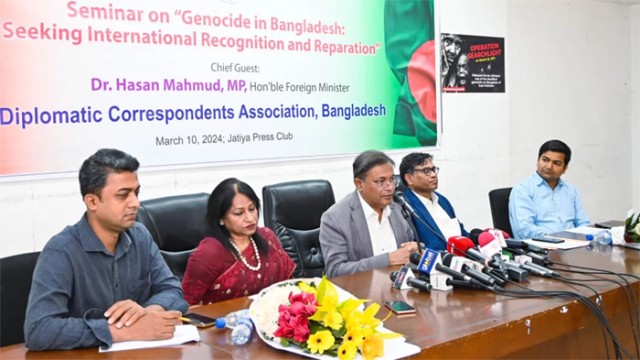

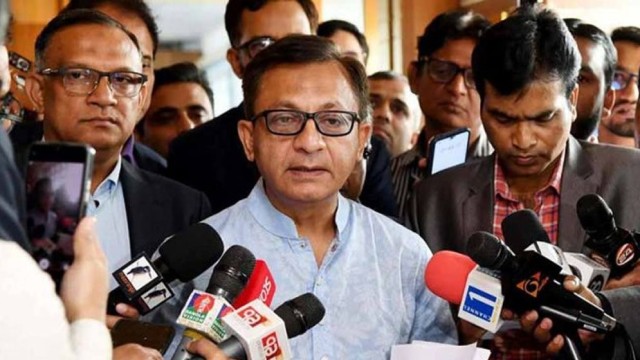
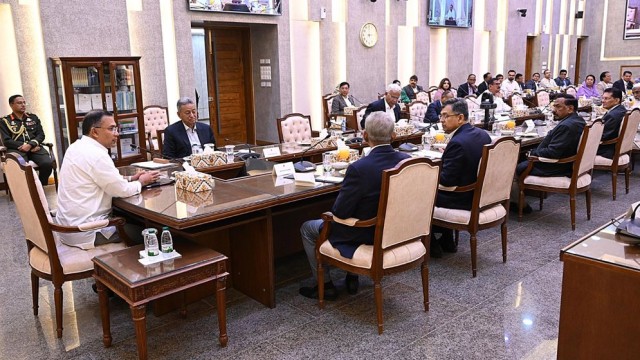

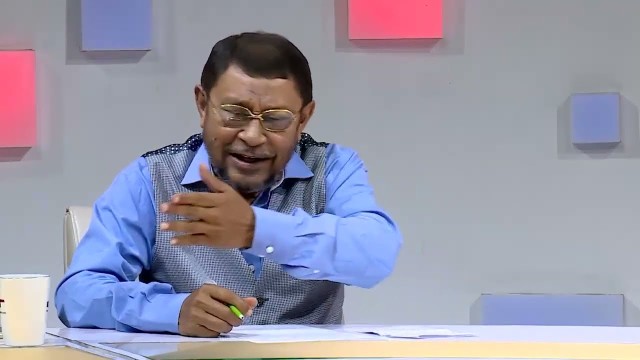
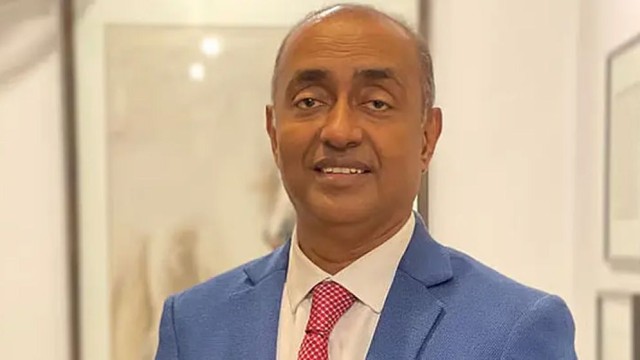
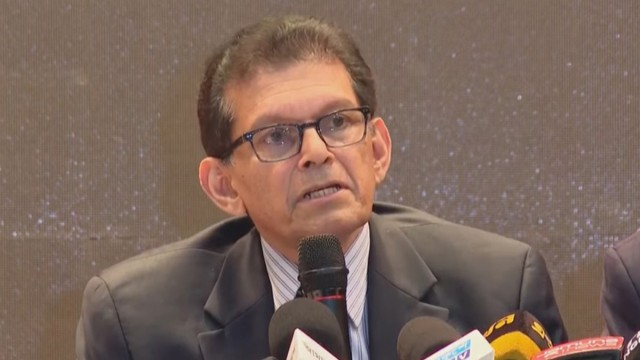
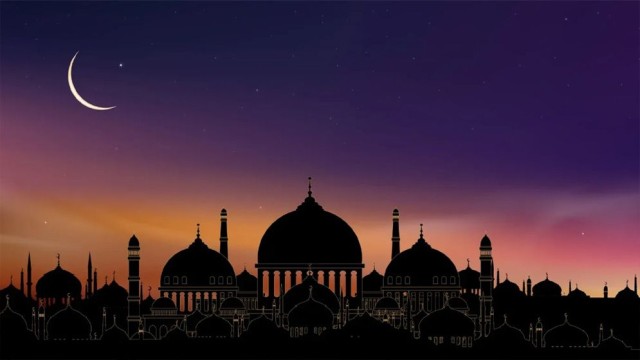

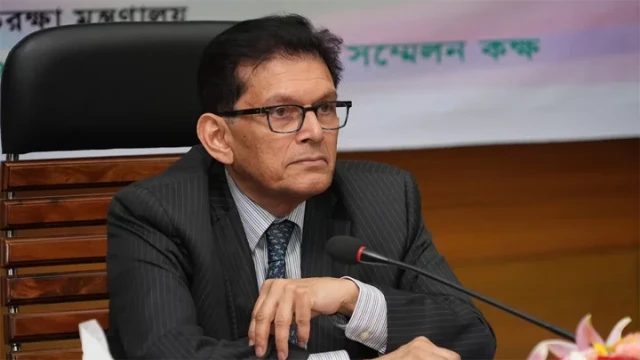











Comment: